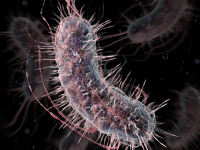US-BASED GHANAIAN CHEMISTRY PROFESSOR TO RESEARCH INTO NEGLECTED DISEASES.

Ohio Dominican University (ODU) Assistant Professor of Chemistry, Janet Antwi, Ph.D. is leading a research study with students to identify potential new treatments for Leishmaniasis, a neglected tropical disease that kills thousands of people every year in developing regions including Africa, Asia and South America.
According to Dr Antwi, Leishmaniasis is classified as a neglected tropical disease (NTD) because it inflicts significant health burdens on some of the world’s poorest populations, and treatments have not been widely pursued nor funded by major drug manufacturers.
“A lot of the industries are focusing on big diseases such as cancer, hypertension and others; however, these neglected diseases are killing people in poorer countries,” Antwi said.
“I’ve always been interested in diseases that impact people in poorer countries because I was born in Ghana, so I know what it feels like to not have access to medication for diseases that could be treated.”
DETAILS:
According to the World Health Organization (WHO), “The leishmaniases are a group of diseases caused by protozoan parasites from more than 20 Leishmania species”.
These parasites, WHO says are transmitted to humans by the bite of an infected female phlebotomine sandfly.
The majority of people infected with Leishmaniasis do not become ill. Instead, those who develop symptoms suffer from a reaction related to a Leishmania infection.
There are about 30,000 cases of the most severe form of Leishmaniasis, Visceral Leishmaniasis, found annually, according to the WHO.
“Currently there are drugs that you can take upon infection; however, there are limitations to the current medicine on the clinic and so there is the constant need to research new candidates,” Antwi said.
APPROACH:
Antwi and her students are taking a natural product approach to discover new drug candidates. The natural product lead compound Berberine has showed anti-leishmanial activity at sub-micromolar level. Her group is currently optimizing the lead compound to improve its drug like properties.
While it can take as long as 15 years for a drug to be studied, approved and developed for clinical use, she says she is hopeful that, if they continue to make good progress, this new treatment could be available to patients in as few as seven years.
Antwi says it is rewarding to be able share her passion for researching these types of treatments with her students.
“Whenever I introduce the drug-discovery process, I always have students who are passionate and they want to hop on the project. At Ohio Dominican, we’re privileged to have the ability to set up a lab and do such chemistry and such research here.”





